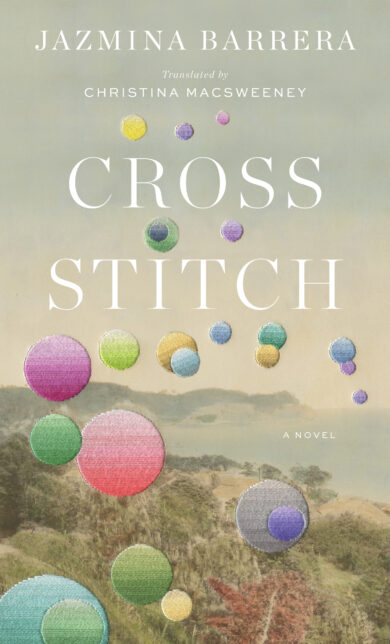
It was around noon when I got into the shower. The damp patch on the bathroom ceiling was spreading, making the paint peel and feeding a colony of fungi, initially green and then red, like a moldy tortilla. During the first year and a half of my daughter’s life, I used to let things like that just happen, too weary and overworked to worry about them, but now they’re beginning to irritate me.
I walked naked into the bedroom, chose some clothes, but before I had time to dress, I heard my cell phone vibrating. The screen showed a Facebook message from Valentina Flores. It took me a moment to remember that she was Citlali’s aunt: I’m devastated, Mila dear, my heart breaks every time I write this. Citlali had an accident, she drowned in the sea in Senegal. We’re bringing her ashes back. I’m so sorry, Mila. She adored you and I know you adored her.
My head hurt like I’d been punched in the face. Like someone was trying to suck my brains out through my eyes. I don’t know how long I sat there on the bed, hugging my towel, trying to cry silently so my daughter and Andrés wouldn’t hear. Brief, painful images flashed across my mind, one after another like bats in a cave: Citlali’s face, her lips blue; her arms battling against the current; her open mouth swallowing salt water; her body floating amid strands of seaweed, spume, and plastic bottles. All this mingled with the laughter and shrill voice of my daughter: she was singing and dancing with her father to an album by The Breeders. My damp hair was dripping down my neck. It was hard to breathe.
After a while, Andrés left her playing with a toy and came into the bedroom. Which friend? he asked. You don’t really know her, I replied. You only met her once. Is she the one with the parvovirus dog? No. The punk? The engineer? The child-hating redhead, the blonde child-hater?
I smiled and, as I did, realized that my nose was bleeding. Andrés went to fetch cotton balls to stem the flow. I didn’t have the strength to explain who Citlali was. I didn’t even try, not until later, until that night.
Is she the one who lives in Spain?
No, that’s Dalia. Citlali was always moving around. She finally settled in Brazil but had to travel a lot because she worked for that environmental NGO.
Right, and I met her? Was she the woman with black hair and dark complexion?
No, that’s Dalia too. Citlali had short, fair hair and was really skinny.
She wore kind of masculine clothes, right?
Yes, that’s her.
And you three were childhood friends?
Well, we met in middle school.
But then you were at college with Dalia.
Same department, different majors.
Ah, I think I know who she is now.
I woke very late the next morning, and the first thing I did was text Dalia. Her reply came back after a few hours. It simply said, Yes, I know. I had no idea what else to say, and I guess she didn’t either.
*
The Spanish verb bordar is derived from the Indo-European bhar, meaning point, bristle, hole. This, in turn, has an etymological association with the Latin fastus, from which we get fastuoso and fastidio (lavish and annoyance). In both Spanish and English, the verb has a common root in the Old French brouder, meaning “the side of a boat” (as in starboard). And this is how it relates to embroidery, which was used to decorate the edges of fabrics.
The tenth-century Anglo-Saxon Exeter Book contains an ambiguous extract: Faemne aet hyre bordan gerised. The ambiguity lies in that bordan can mean table, embroidery, or, as above, edge. One possible translation is, “A woman’s place is at her embroidery.” A looser translation might be, “A woman’s place is on the edge of the abyss.”
__________________________________
From Cross-Stitch by Jazmina Barrera (trans. Christina MacSweeney). Used with permission of the publisher, Two Lines Press. Copyright © 2023 by Jazmina Barrera/Christina MacSweeney.

